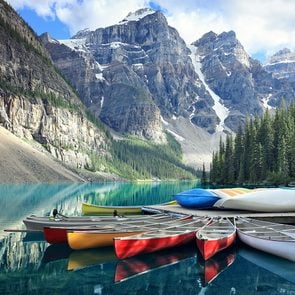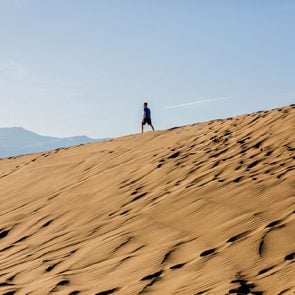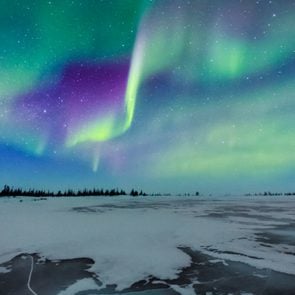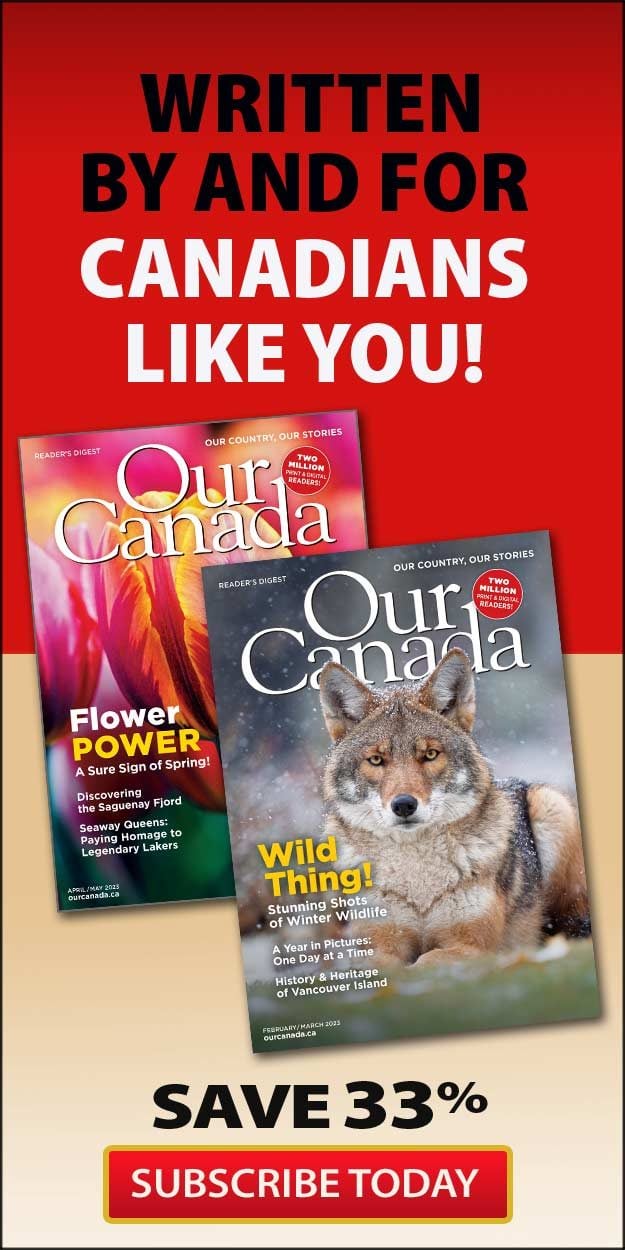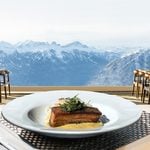Exploring the Wonders of the Yukon
Introducing a good buddy to the Yukon’s history and beauty made for a memorable week.
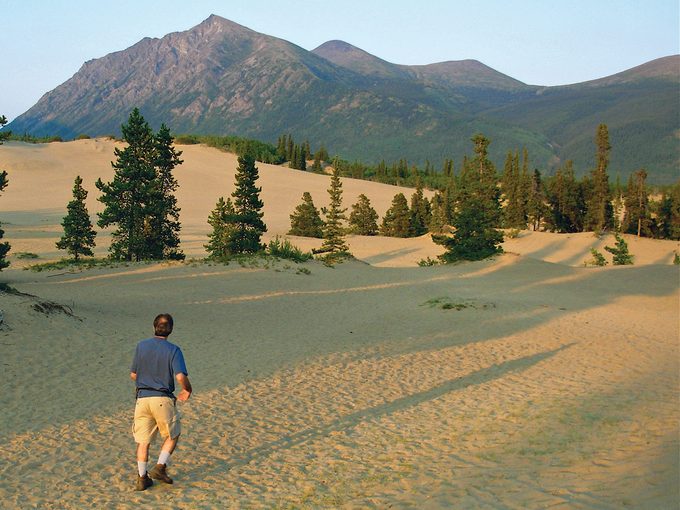
We laced up our hiking boots and began a short evening trek over the undulating sand dunes of a remarkable geological phenomenon, the Carcross Desert, billed by Yukon Tourism as “the smallest in the world.” To the east lie mountains upon which Dall sheep lazily grazed and over whose highland plateaus the caribou of the southern Yukon had meandered for millennia. To the west glimmered Lake Bennett.
In the spring of 1898, the impatient thousands who had been waiting at the head of the lake for the ice to break began a frenzied two-week race along the treacherous water system of the Yukon River to the gold-laden creeks near Dawson City. This was during the historic Klondike Gold Rush.
Below us lay the sleepy hamlet of Carcross, its name a shortened version of the original, Caribou Crossing. It was here, in the years before the white man swarmed into the Yukon, that the caribou would cross the river, and here that the First Nations Peoples would intercept them to fill their meat caches for the winter.
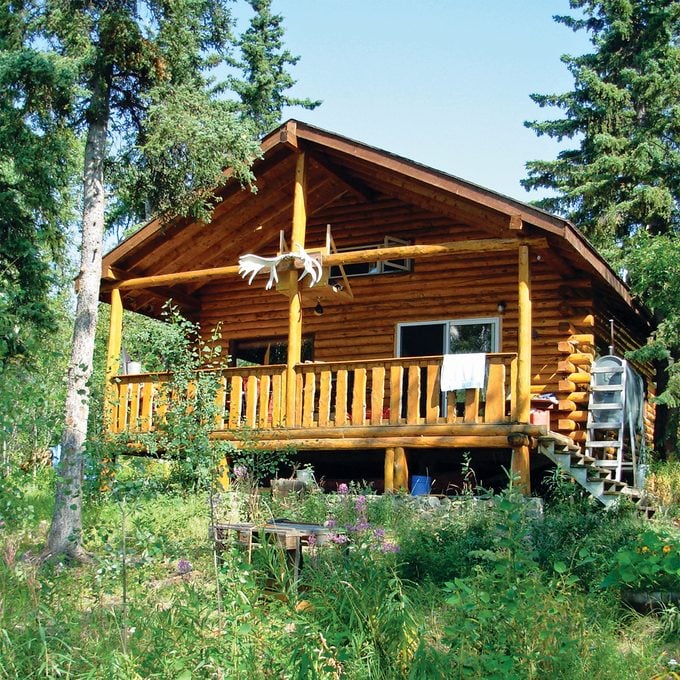
Unforgettable Places to Visit in the Yukon
There is something special about playing tourist guide to a good friend, showing him places familiar to you and watching those places being viewed in enchanted wonder by someone who had never previously visited—not to mention recalling your own delight when you yourself had first discovered them, many years earlier. I had such an experience when I got to show my good friend Vern Fanjoy around a portion of the southern Yukon. It was an important trip for both of us. Although I’d moved out of the territory 15 years earlier, I never really left, as I kept my log cabin there, returning most summers to get my “northern fix.”
This trip for Vern was part of a healing process: his wife had died that spring, and he, along with his two grown sons, were still coming to grips with their grievous loss.
Earlier that day we had wandered around Carcross for an hour, snapping photos of the village’s picturesque log cabins, most of which had seen little change over the past century. Paintings by the artist Ted Harrison, who had once taught at the village school, feature many of the buildings we were photographing, including the tall-steepled Anglican church that presides over one of the village’s street corners.
We had also paid a respectful visit to the Carcross cemetery. Most of the group who had first discovered gold in the Klondike now rest here. When the world learned about that find, 30,000 hopeful prospectors stampeded into the Yukon in the greatest gold rush the world had ever seen.
Discover more historical landmarks every Canadian needs to visit.
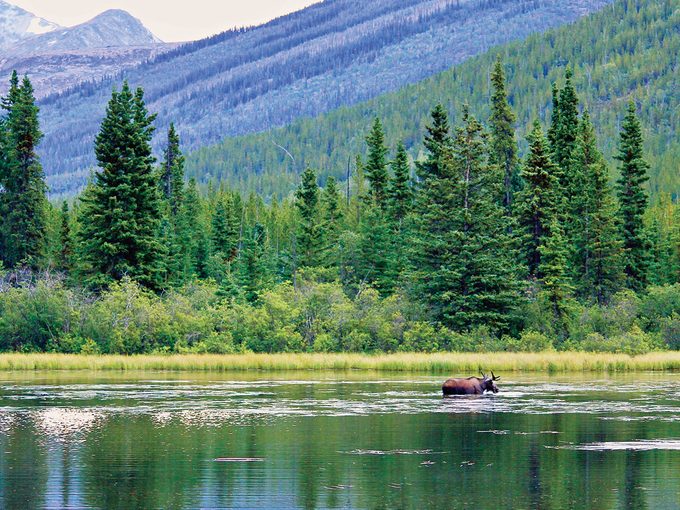
Back to Nature in the Yukon
Time passes quickly. Eight nights later, Vern and I relaxed on the beach at my cabin, quenching our thirst with locally brewed beer and reminiscing about the previous week. It was a warm, calm evening and the lake was a mirror, reflecting the mountains on the far shore. My cabin lies on the water trail that the goldrush stampeders took to the Klondike—and which is an excellent camping spot—so they may well have gazed out at the same scene.
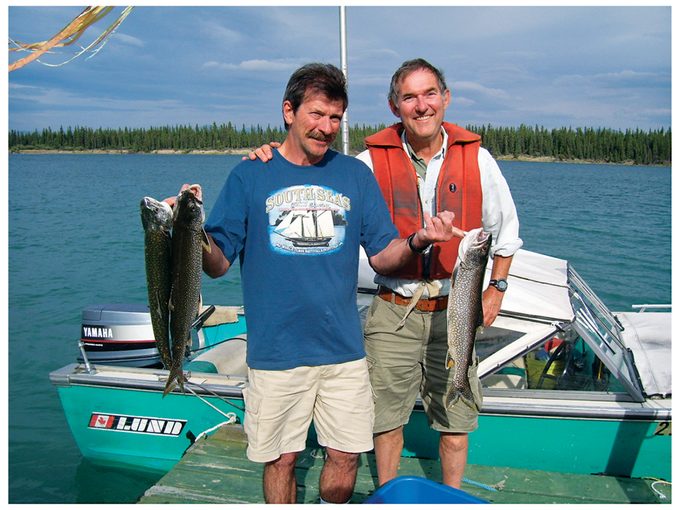
Vern and I had seen and done a lot over the previous week, starting with spending one day canoeing the Snafu Lake system—one of my favourite day trips. We did a bit of fishing and caught some pike that, pan fried with butter and garlic, we devoured for supper that same evening.
We also went trout fishing on Tagish Lake with my good friend “Breakaway” Bob Ehman (a nickname well-earned in the Whitehorse hockey community) and had a delicious fish fry at Bob’s cabin.
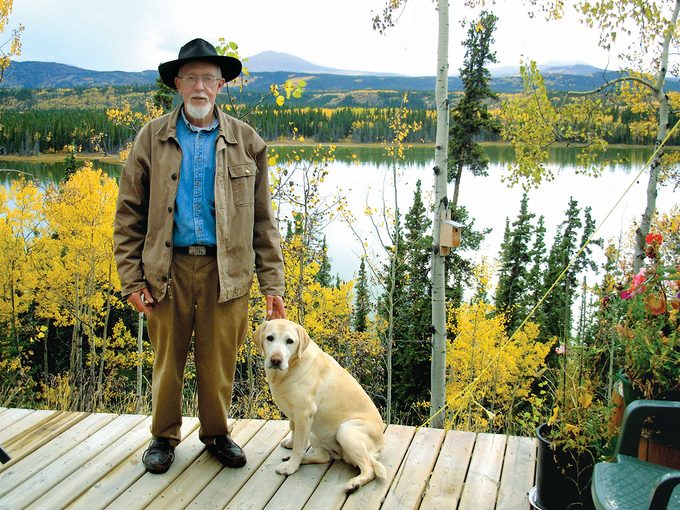
Another day, we stopped in to have lunch with my good friends Peter and Christel Percival at their Cowley Lake homestead. The view from their living room overlooking the lake and several ranges of mountains to the west is spectacular. On previous visits I’d watch caribou and moose crossing the lake and I scoped out Dall sheep in the mountains. Lunch that day was moose ribs, which had been simmered in a slow cooker in succulent juices and spices. Like the view, Christel’s recipe was spectacular.
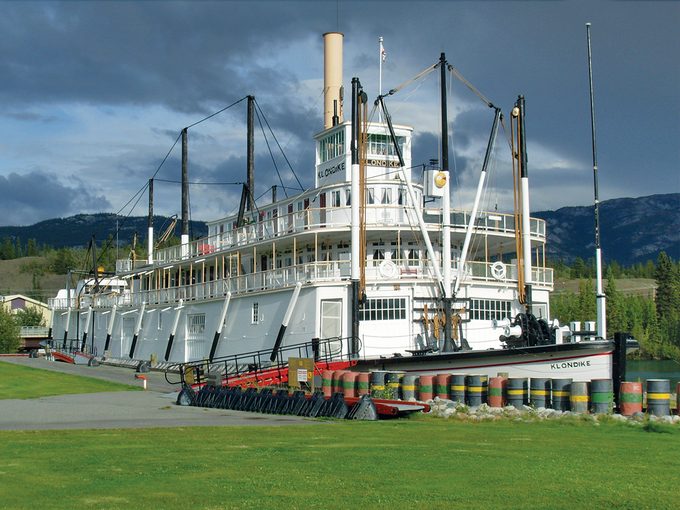
Whitehorse
On yet another day, we putzed around in Whitehorse. There’s a lot to see in the Yukon’s capital. For example, there’s the longest wooden fish ladder in the world—which chinook salmon access after having travelled from the Bering Sea and up the Yukon River in one of world’s longest upstream salmon migrations.
We visited the Yukon Beringia Interpretive Centre. It looks back into the amazing world of ice-age Yukon, replete with artifacts and exhibits of woolly mammoths, giant beavers, mastodons and other prehistoric creatures.
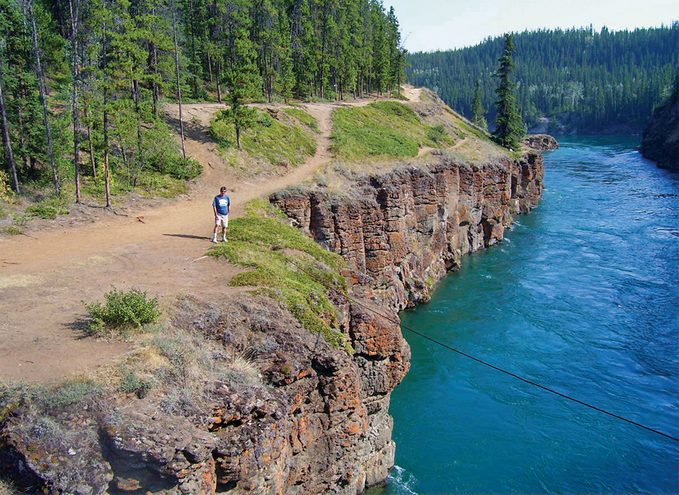
We walked the cliffs above Miles Canyon, a dramatic and treacherous narrowing of the Yukon River just south of Whitehorse. Many gold seekers drowned there in 1898.
Skagway, Alaska
Finally, we visited Skagway in Alaska, milled about with tourists from three cruise ships and then drove out to the trailhead of the Chilkoot Pass. For an hour, we hiked the path over which the gold seekers had clambered—just so Vern would be able to say that he had done it. I had been over the Chilkoot Trail four times before, each excruciating occasion more exhilarating than the last—the Chilkoot is a tough trek.
More Places to Visit in the Yukon
We fit a lot in during the short time Vern was able to spend in the Yukon, but any further exploration would have to wait for another visit. We hadn’t been up the Alaska Highway beyond Whitehorse, where lies the breathtaking scenery of Kluane National Park. We hadn’t been north to Dawson City and its historic Klondike goldfields. Nor had we been over the northern tundra of the Dempster Highway and on to Inuvik in the Northwest Territories, where vehicles often have to give way to the mysterious and miraculous migrations of herds of caribou. We also hadn’t driven the North or South Canol roads, first built during the Second World War to service pipelines carrying oil from Norman Wells, N.W.T., to the Alaska Highway and then to a refinery in Whitehorse; the fuel was then destined for Alaska to help with the war effort.
But you can’t do it all in one visit, and work beckoned Vern back to his home in B.C.’s Fraser Valley. As I am retired, my plans kept me in the north for another eight weeks or so. Vern waved as I pulled away from the airport, where I’d dropped him off. I knew I’d see him at the arena sometime the following October, as we play old-timers’ hockey on the same team.
In the interim, I had both a sheep hunt and a moose hunt lined up with old friends. And I wanted to do a bit of writing during those quiet evenings at the cabin. It was over the course of several of those evenings that this article came to be.
Crafting your own dream itinerary of places to visit in the Yukon? Check out the highlights of this east coast traveller’s Yukon adventure.
